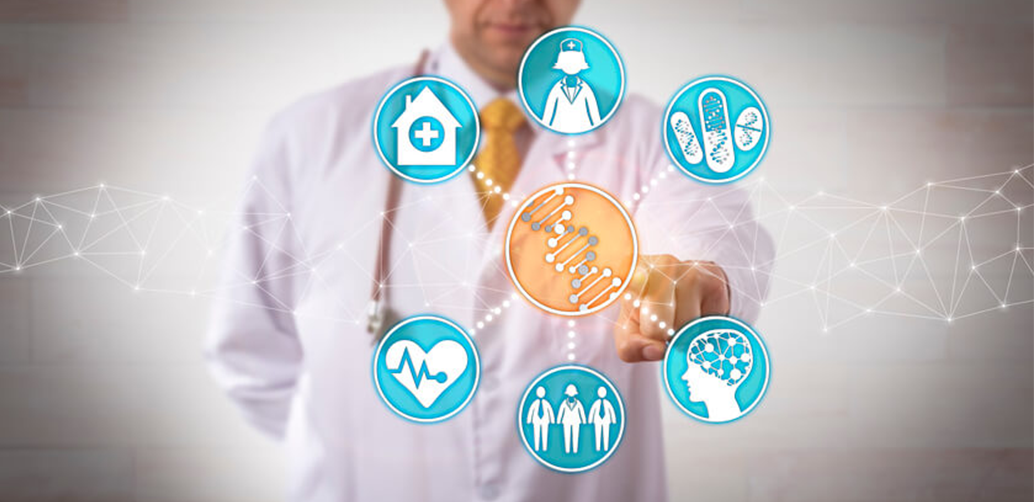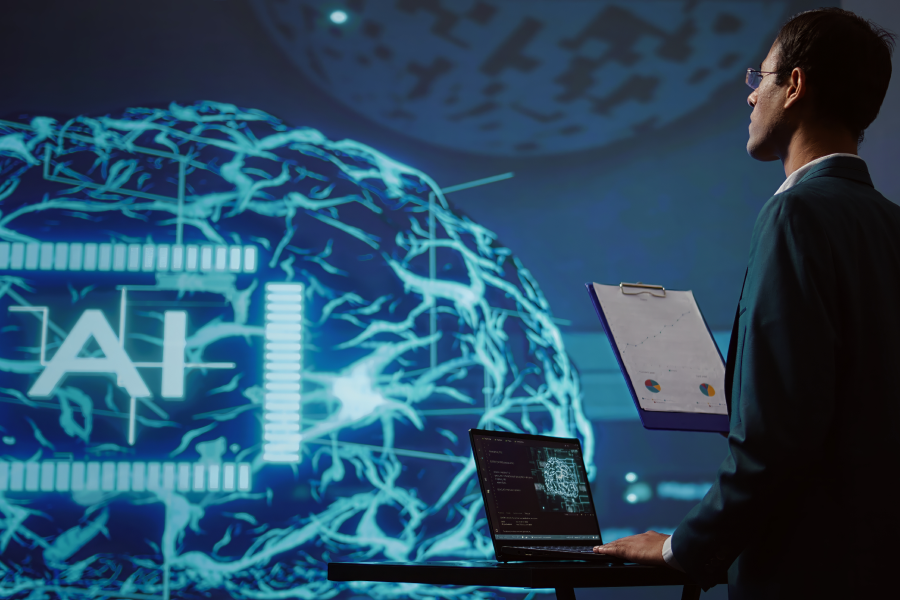The pandemic brought us to the centre stage, wherein we needed remote solutions more profoundly than ever. This is especially true for the healthcare industry as people approached medicine and treatment in a unique, digital fashion.
The technology that all of us embarked upon were Electronic Medical Records (EMRs). EMR became a popular choice as it operated on delivering modern patient care precisely. But the question is- Can EMR alone hold all the informatics capabilities of the healthcare industry that has just begun evolving?
The answer is a blatant NO!
But Why is EMR not Enough?
The predominant cause of EMR dysfunctionality after a point is because of the rapid growth in the precision medicine sector. This sector is particularly driven by knowledge derived from genomic and genetic information, which stands apart from conventional medical records. Since the amount of data generated through molecular testing is huge in volume, it requires a separate adequate informatics and management system for storage and retrieving.
What is the Functionality of Core EMR?
This IT system was formulated to store and display data in real time. They include-
· Clinical summaries
· Lab test reports
· Operative notes
· Imaging studies, etc.
Basically, they provide an insight into a patient’s medical history and exist as individual documents. Seldom are they connected with other aspects of a patient’s health chart to derive meaningful inferences. However, these may not be the most relevant details after a few years, decades, and so on. For instance, a blood test report taken in 2021 may not have integral inferential value in 2023. It can only help trace the health pattern, if needed.
What is Genetic Information?
Contrary to the information that an EMR holds, Genetic Information is a replica of a patient’s genes and fundamentals related to the same. Operating on DNA, these rarely change over the years. So the molecular profile of an individual when he was born remains the same, say, in his 60s.
This is the reason why this information becomes particularly important and actionable in the medicinal course. Additionally, a system must also notify about research studies being conducted on genetics and genomes as it is a rapidly advancing field.
The fact that this informational piece is operative throughout the life and needs to be preserved suggests the need of a system beyond EMRs. Genetic Information needs to be managed, preserved, and stored with a new advanced informatics technology.
How has EMR Failed to Use Genomic Intelligence?
There have been instances where EMR has failed to put genomic intelligence to precise use. That is how the need for informatics beyond EMR was felt. Here are a few such instances-
· As per research studies, even after having the result of molecular tests, healthcare providers couldn’t identify people who were vulnerable to hereditary disease. According to a recently published shocking report. It unveiled that most women meeting the requirements for genetic screening aren’t getting tested for breast/ovarian cancer.
When the study pondered upon the reason for the same, it resulted in encapsulated accessibility to molecular details. Information was present in bits and pieces with different institutions, in varied formats and at several locations.
This implies that irrespective of the EMRs being used, correct care was not being provided. And hence EMR needs to increase its range and span across multiple medicinal channels.
· Another case of a patient named Alexander came to light, who was diagnosed with a seizure disorder shortly after birth. The conclusive statement of the disease and concerned treatment was drawn via germline test. The report of the test also revealed other risk factors pertaining to heredity. This also included cardiovascular diseases.
In his 70s, Alexander reports to his doctor with issues of fast heartbeat and shortness of breath. Tests undertaken reported Congestive Heart Failure (CHF). Having no access to the genetic reports of the patient, which do remain relevant even then, the physician didn’t know that CHF was caused by dilated cardiomyopathy. This needed a whole together different regime.
What is the Need of the Hour?
As healthcare organizations are evolving considerably, they do need a catalyst to an EMR. This new system must specialize in holding and operating molecular data. With specific knowledge of molecular profile, it will be far easier to use and share genomic details and test results in clinical settings. The need is to have a platform that allows the amalgamation of genetic data with clinical information. Further, it should operate on interpretations derived from both the peculiarities. Even the advancing genomic science should also get a platform through technological advancements.
As the aforementioned cases suggested, healthcare providers should immediately begin incorporating genetic/genomic data. These should be accessible whenever a physician is making a critical clinical decision.
The following points should be taken into consideration when transitioning towards a better healthcare model-
1. The details of providers in the organization who are already ordering genetic tests. Furthermore, how is the data being stored, managed, and accessed at the time of need.
2. Since genetic/genomic data is only going to increase in volume, what approach will help make the management of such data feasible? What will the organizational value of such data and how will it constantly add value to the system?
3. The incorporation of a system that provides up-to-date data in terms of precision medicine. This will help in establishing clinical guidelines that operate on the latest trends.
Summing Up
With advancement in the precision medicine area, the healthcare system has achieved a new pedestal. Genetic and genomic data have acquired valuable stature as they help arrive at better diagnosis and treatment conclusions. The reason for incorporating precision medicine is to elevate the standards to the healthcare system, better patient satisfaction, and so on.
However, in adding value to the healthcare industry, providers need to acknowledge the inefficiency of the traditional EMR to handle the plethora of information coming its way. Rather the need is to have a system that combines EMR with a newer management system that has knowledge of and can handle molecular data.

 Web and Full Stack
Web and Full Stack CMS and Frameworks
CMS and Frameworks Online Marketing
Online Marketing Cloud Services
Cloud Services ECommerce
ECommerce Mobile
Mobile



